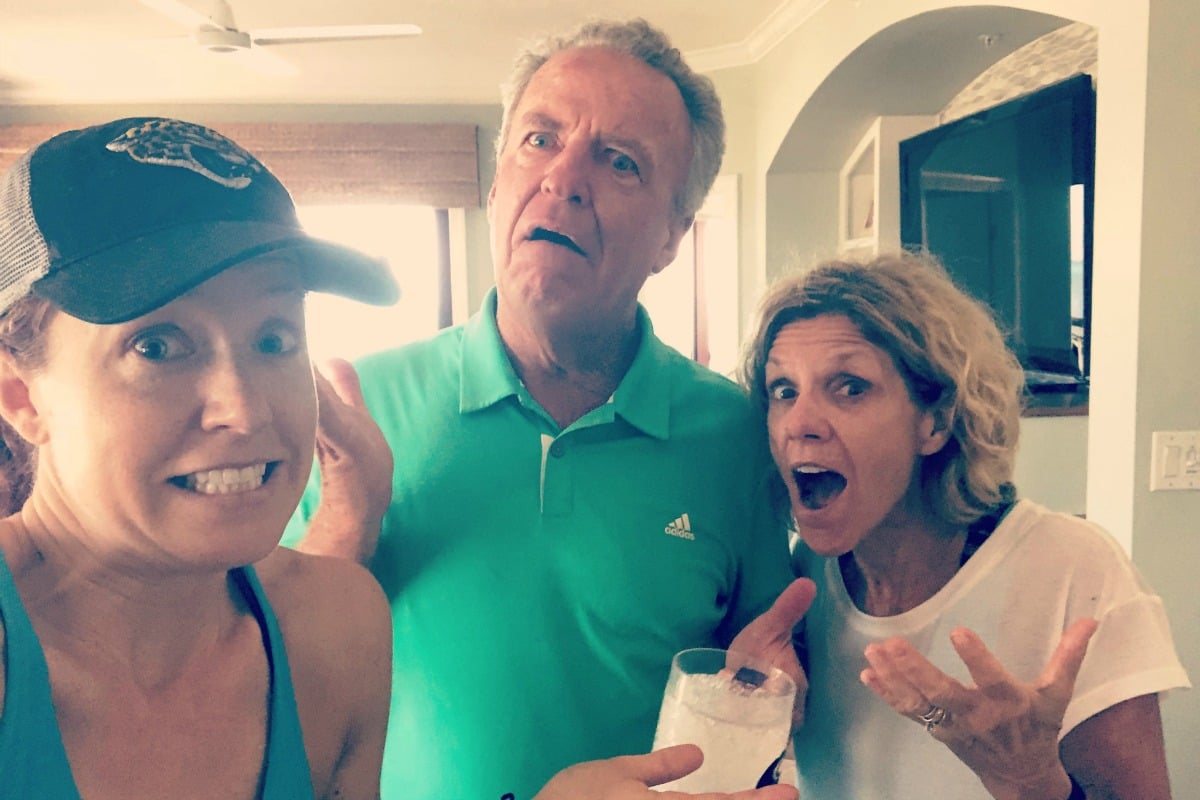
At 34 years old, I found myself jobless and living with my parents. From the outside, it easily looked like another failure-to-launch story.
But really it was a third-life-crisis story. I was making the ultimate leap of faith — leaving my successful corporate career to pursue my dream job.
With a serious drop in income — from six figures to zero figures — I had to significantly cut expenses in order to stretch out the money I had saved, and my parents were willing to house me until I got back on my feet.
Watch: Classic Mum phrases. Post continues below.
It was an adjustment for all of us. I had to get over the ego blow that I was living with my parents at my age, they had to get used to their nest no longer being empty, and we all had to accept the inherent decrease in privacy.
To add to that, they had recently downsized from the large house I grew up in to a condo at the beach. They were in a transition period as well — settling into retirement.





























































































